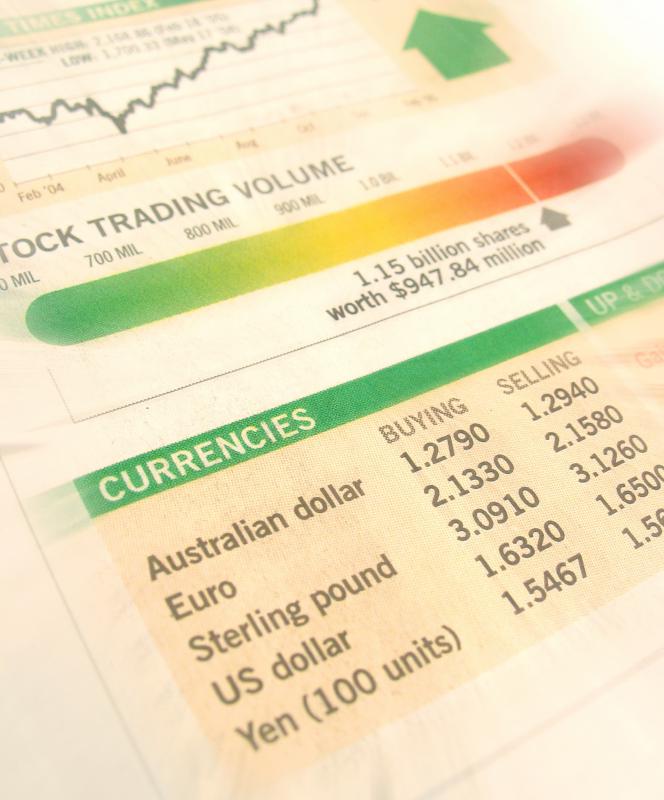At WiseGEEK, we're committed to delivering accurate, trustworthy information. Our expert-authored content is rigorously fact-checked and sourced from credible authorities. Discover how we uphold the highest standards in providing you with reliable knowledge.
What Is Hedging Currency Risk?
Multi-national companies and investors with overseas holdings have to contend with currency risk which describes the risk that an investor could lose money due to fluctuations in the value of a nation's currency. Hedging currency risk involves taking steps to offset the impact that declining currency values may have on an investor or entity. Financial analysts and brokers are usually tasked with hedging currency risk and use various techniques such as buying futures contracts, negotiating variable interest rates and including clauses in contracts whereby one party has to cover the other party's losses.
Currency prices fluctuate on a daily basis but investors trading in foreign goods stand to gain or lose very little as a result of these price movements as long as the currency prices do not drastically change. When the value of a particular nation's currency suddenly plummets then goods from that nation become much less expensive. If the value of the currency in an exporter's home nation drops in value then the exporter effectively loses money on the deal while the opposite occurs if the value of money in the importer's home nation falls in value. Therefore, both buyers and sellers are concerned with hedging currency risk.

Some traders use futures contract to hedge against risk. In such an arrangement, one party agrees to sell something to another party for a set price on a future date. If the person selling the goods is located in France but the sale price is based on dollars, then the seller is assured of receiving a fixed amount of dollars regardless of the value of the Euro at the time of the trade. In such a situation, the element of risk is now focused on the value of the dollar. Some people further reduce the risk by purchasing several futures contracts each of which involves a different type of currency and tying one to each exchange of goods.
Rather than hedging currency risk with futures contracts, some people hedge risk by using variable interest rates. If one party agrees to issue a fixed interest rate loan to a borrower in another nation, the lender stands to lose money if the currency in the borrower's nation drops in value. To avoid this situation, some people attach loan interest rates to indexes that track exchange rates. In such an arrangement, the borrower's rate of interest moves up or down in conjunction with currency exchange rates. Therefore, neither party gains or loses as the result of fluctuating exchange rates.
In some situations, parties include compensation clauses in trading agreements. Typically, one party agrees to make a lump sum payment to the other if falling currency prices cause one investor to lose money as the result of a deal. Other investors and traders hedge risk by including cancellation clauses in contracts so that either party can renege on a deal if currency prices rise or fall past a certain point.
AS FEATURED ON:
AS FEATURED ON:











Discuss this Article
Post your comments